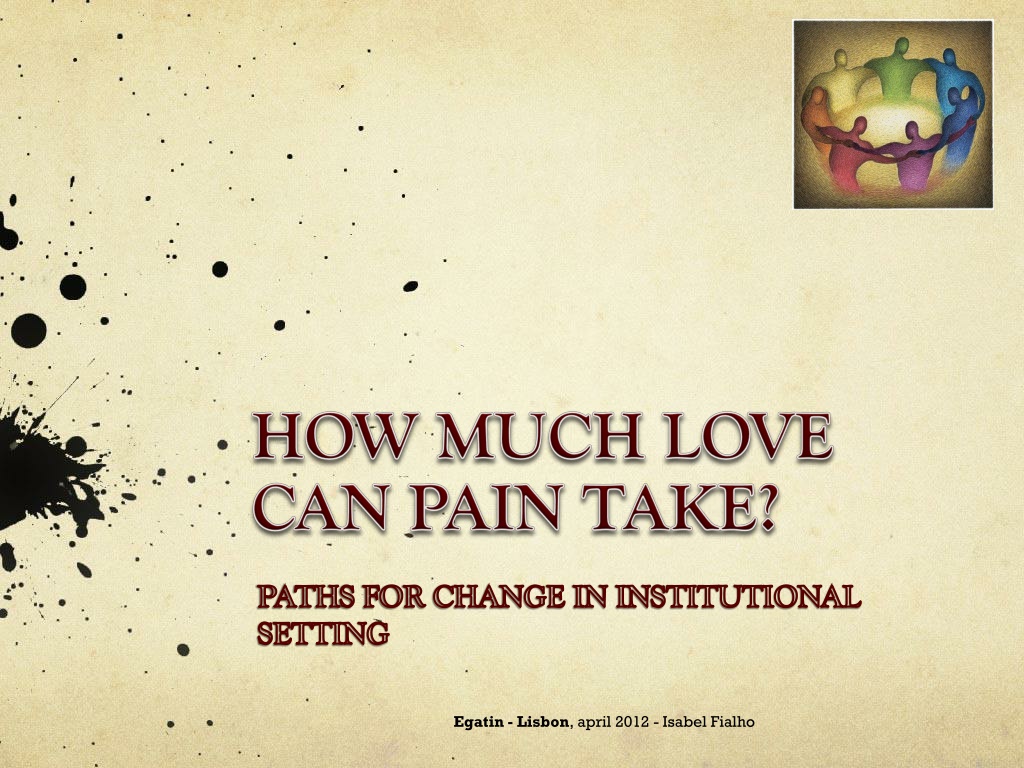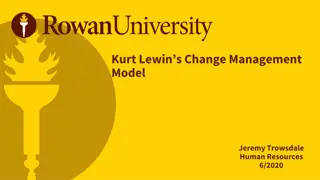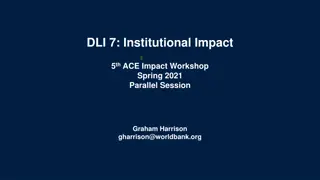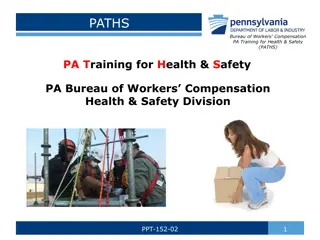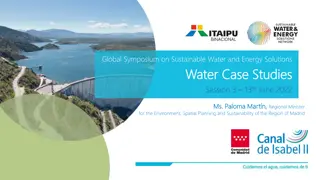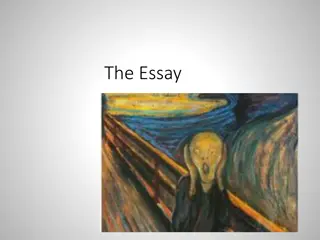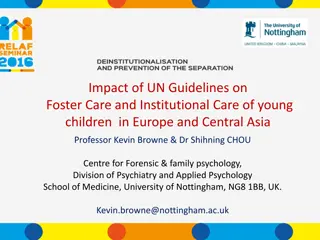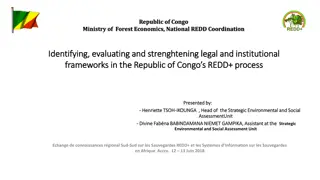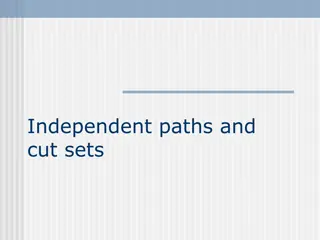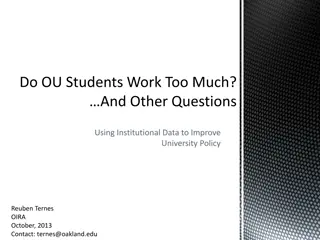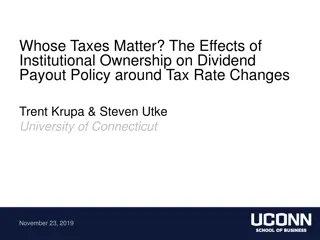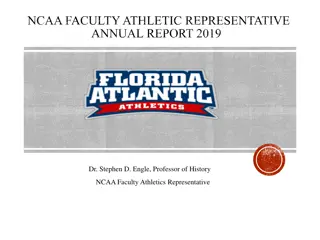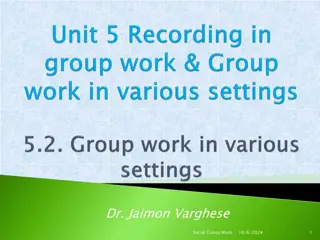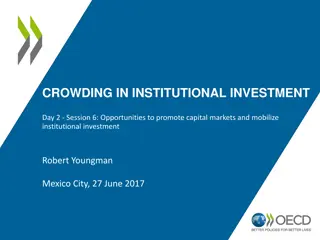Paths for Change in Institutional Settings by Isabel Fialho
Delve into thought-provoking questions and reflections on love, pain, and institutional challenges in society through the lens of psychologist Isabel Fialho. These images encapsulate her musings on personal growth, clinical productivity, and the intricacies of group dynamics within psychotherapeutic settings.
Download Presentation

Please find below an Image/Link to download the presentation.
The content on the website is provided AS IS for your information and personal use only. It may not be sold, licensed, or shared on other websites without obtaining consent from the author.If you encounter any issues during the download, it is possible that the publisher has removed the file from their server.
You are allowed to download the files provided on this website for personal or commercial use, subject to the condition that they are used lawfully. All files are the property of their respective owners.
The content on the website is provided AS IS for your information and personal use only. It may not be sold, licensed, or shared on other websites without obtaining consent from the author.
E N D
Presentation Transcript
PATHS FOR CHANGE IN INSTITUTIONAL SETTING Egatin - Lisbon, april 2012 - Isabel Fialho
HOW MUCH LOVE CAN PAIN TAKE? THE POET IS A FAKER. HE FAKES IT SO COMPLETELY, HE EVEN FAKES HE S SUFFERING THE PAIN HE S REALLY FEELING. FERNANDO PESSOA Isabel Fialho
HOW MUCH LOVE CAN PAIN TAKE? Is there relief from the pain and suffering of life? What must a person do to find peace and happiness? How can we be sure of the answers to our questions and not be misled by false gods and beliefs? Isabel Fialho
HOW MUCH LOVE CAN PAIN TAKE? In our western society, are institutions prepared to solve internal conflicts of the individual? We have heard of quality of life , good life , and then we have also heard of did you achieve your objectives for this year , which path did your x reach this year? Which criteria must guide our clinical productivity The DSM-IV-R or the ICD-10? Perhaps, some diagnoses give more money to hospitals than others, investing more in some mental programmes than others Isabel Fialho
HOW MUCH LOVE CAN PAIN TAKE? We start as a patient and turn out as a group-analyst. Our concern respects the unconscious and preconscious aspects of the group matrix when we, as group-analysts, pass the group-analytic pattern onto our patients. What happens when the institutional pattern is mentally disturbed and tries to invade our psychotherapeutic group pattern? Isabel Fialho
HOW MUCH LOVE CAN PAIN TAKE? Our purpose as group-analysts is to interpret and analyse only according to the group matrix aspects (Cortes o, 1989). However, what are the limits for our own mental pain? Should we embrace all challenges coming from the outside, institutional ones and/or clinical ones? Isabel Fialho
HOW MUCH LOVE CAN PAIN TAKE? As group-analysts - Observe - Interpret - Active agent in that interaction, personal and institutional Mental growth of our patients and our own - Elaborating our counter-transference - Holding capacity - Capacity of r verie - Capacity to tolerate mental pain Isabel Fialho
HOW MUCH LOVE CAN PAIN TAKE? Changes in the analytic setting - Capacity of change and growth - Capacity to bear doubt, to bear uncertainty, to bear mental pain - Love of true - Sense of aesthetic Isabel Fialho
HOW MUCH LOVE CAN PAIN TAKE? Without Desire, Without Memory and Without Understanding Capacity of being linked with someone or something, defines our quality of life - Link of Love - Link of Hate - Link of Knowledge - Link of Recognizing What is the best combination for us to continue working despite the pain? Isabel Fialho
HOW MUCH LOVE CAN PAIN TAKE? - Be resilient - Deal positively with frustrations using limits - Always search for the truth - Be recognized as someone different, as someone grateful and as someone good If we do it, why is it that some mental health institutions cannot? Isabel Fialho
HOW MUCH LOVE CAN PAIN TAKE? Questions our patients bring to us: - What direction to go in life, - Feeling abandoned in love, - Feeling betrayed in the workplace or by family, - Feeling humiliated by their position in life, - Feeling jealous, guilt Isabel Fialho
HOW MUCH LOVE CAN PAIN TAKE? Excerpts from one of my psychotherapeutic groups: Taken from Session 12 Clara When I lost one of my fish, I cried a lot, it was really painful for me. Guadalupe I understand I have the same kind of relationship with my mother-in-law that I used to have with my mother, one of great dependency, I have this huge difficulty in being separated. Teresa I identify myself with Clara, with her way of being. I guess she s afraid to get close, to get on with people, she s afraid of loss. She protects herself from people and doesn t get involved with anyone because she s afraid of losing what she loves. Isabel Fialho
HOW MUCH LOVE CAN PAIN TAKE? Taken from Session15 Sandra My brother was the most important person in my life and he died it was the saddest day of my life! It was a shock! It seems like it was yesterday Clara Her story touched me deeply. My brother also died a few years ago, we were also very close. It was the saddest day of my life, the most painful. This is a wound that never heals! Isabel Fialho
HOW MUCH LOVE CAN PAIN TAKE? Taken from Session 18 Cl udia We had been together for two years, but he cheated on me. We separated and, after a while, we decided to give our relationship another chance, but it wasn t the same thing, I couldn t trust him anymore and I said it was over. I needed more, I wasn t happy, I guess I ve got this issue with love not yet resolved I know what being in love is and now I don t know if I can ever love someone again! I even thought of suicide, my world just fell apart Isabel Fialho
HOW MUCH LOVE CAN PAIN TAKE? Taken from Session 21 Sandra I couldn t come last session, sometimes I get these headaches and nobody knows the reason, I ve done lots of medical exams and nothing the headaches are so horrible that I can t even open my eyes. Usually it happens at this time of the year it s when I remember my brother the most. I ll never forget, it will never end! I miss him so much! Isabel Fialho
HOW MUCH LOVE CAN PAIN TAKE? First pain of Humanity: Pain of Helplessness (mental pain as the typical reaction to an object s loss) - How do people live the experience of being in the face of absolute absence of the Other? - Which link prevails: Love, Hate, Envy, the wish to Know or not, therefore recognize or not the Other? Isabel Fialho
HOW MUCH LOVE CAN PAIN TAKE? As group-analysts We must use the holding capacity to help our patients with the transformation of the non-thinking material to return it in a more tolerable, less painful way being capable to think of separation, absence, loss and death. These are the biggest and oldest challenges that Humanity faces, as the only way of organizing the thinking in order to achieve a state of happiness! Isabel Fialho
HOW MUCH LOVE CAN PAIN TAKE? Taken from Session 44 Guadalupe I can t say no, perhaps it was the relationship with my mother, it was always like this. She was always controlling, even when I was married, she would come into my room without knocking and used to say Get up lazy girl, come and get your breakfast , it was awful. Paulo That s too much, I just don t believe it, and you never told her to stop that?! How rude! Couldn t you just put limits on her ? Guadalupe I couldn t. The other day, I was in the bathroom and my son just came in to show me a message on the cell phone Paulo I just don t understand, is this normal? No privacy, no limits, you don t have a life of your own Isabel Fialho
HOW MUCH LOVE CAN PAIN TAKE? Group-Analyses Introduction of the third element in the interpersonal setting. Triangular situation: Individual-Group-Analyst Allows for the identification variability, an Oedipal relationship and Object relationship into the group- analytical matrix, where the group works as a holding environment, promoting a regular working-through process. Isabel Fialho
HOW MUCH LOVE CAN PAIN TAKE? Taken from Session 55 Guadalupe Sometimes I think that I must suffer more to grow more. Francisco What? Nonsense, suffer to grow?! Guadalupe Yes, I need to grow and for that I need to suffer more, I must stop running away from things, perhaps it s a trauma from the past. My mother used to beat me a lot and called me awful names. Isabel Fialho
HOW MUCH LOVE CAN PAIN TAKE? Taken from Session 62 Paulo I didn t use to understand why people got depressed, I thought it was strange. But when I felt the urge to beat my boss, I understood that I wasn t ok, it wasn t normal it was time to get help and it was the best thing I ve ever done. Now I m here and I m feeling different, a better person, a happier one. But I needed to feel that in order to understand that mental illness really exists and must be treated like the other illnesses. That s why it is so important for me to come here, I don t want the group to end. (related to the possibility of our mental team ending because of the new public-private partnership hospital) Isabel Fialho
HOW MUCH LOVE CAN PAIN TAKE? Nuno We don t even know if we will stay together, I think we should do something. We have rights. Paulo This is really very important to me, I really need this group, perhaps there are people who don t need it so much that s why they don t come for instance, Francisco. Isabel Fialho
HOW MUCH LOVE CAN PAIN TAKE? Knowledge Link with Truth and Reality What is the human perception of the value of truth? Are people ready to be confronted with their own painful truth? What do people do with the material resulting from the analyst s interpretation? Do they listen to it? Do they think about it? Or, do they just deny it? Isabel Fialho
HOW MUCH LOVE CAN PAIN TAKE? Taken from Session 70 Francisco Each person has his own way of feeling and living love. For me it s strange the way most people see love, love doesn t exist only because two people love each other, if I love someone it doesn t mean that person should love me back. Love is not a friendship, it s a strong feeling with sexual desire, with passion. Paulo I have a huge difficulty to express the love I feel, not showing it. It looks like I m insensitive, I m a little distant and cold with people. I feel love, I just can t show it. It s like a defense, I don t like to show to others what I feel and I should, instead of bottling everything up, I should sometimes explode. I m different only with my daughter, she awakens my sensitive part. Isabel Fialho
HOW MUCH LOVE CAN PAIN TAKE? I look and I m being seen, therefore, I am! And, now, I m allowed to look and see The importance of being recognized by the mother, allows the child a feeling of existence and of being someone, perhaps the first and most important Link of Love in Self s construction. Isabel Fialho
HOW MUCH LOVE CAN PAIN TAKE? How can we transform this suffering into contents capable of being represented and link them to affection capable of being named? Avoid or change the primary frustration generator of mental pain? Must we destroy mental pain to help ourselves and therefore our patients? What s the main point? Isabel Fialho
HOW MUCH LOVE CAN PAIN TAKE? The Allegory of the Cave A life that is not questioned doesn t deserve to be lived One who loves exaggeratedly stops living and starts living through the loved one The most essential thing for a person is to recognize the use that should be done with their knowledge The part we ignore is much bigger than the one we know Isabel Fialho
